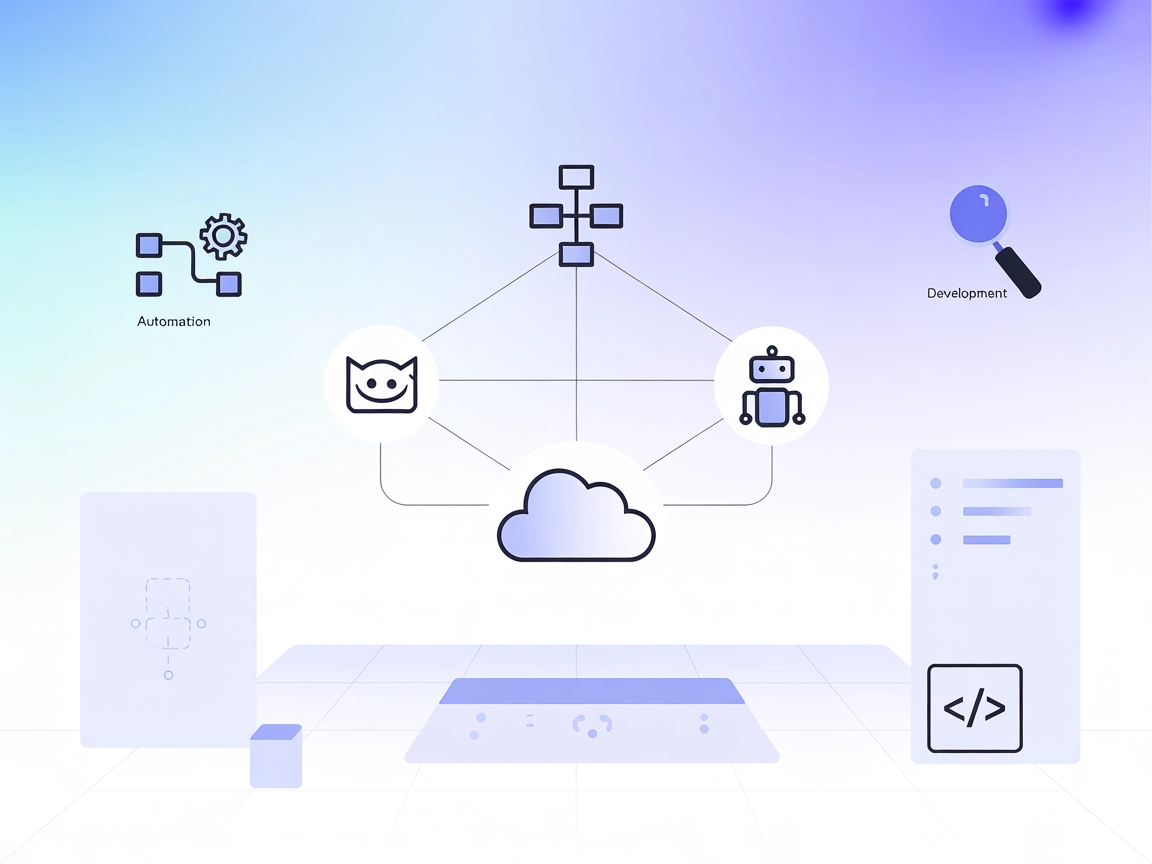
GitHub MCP Server Integration
The GitHub MCP Server enables seamless AI-powered automation and data extraction from the GitHub ecosystem by bridging AI agents and GitHub APIs. Enhance your d...

Automate and enforce immutable dependency pinning for Docker images and GitHub Actions with FlowHunt’s Pinner MCP Server, improving security and reproducibility in your software projects.
FlowHunt provides an additional security layer between your internal systems and AI tools, giving you granular control over which tools are accessible from your MCP servers. MCP servers hosted in our infrastructure can be seamlessly integrated with FlowHunt's chatbot as well as popular AI platforms like ChatGPT, Claude, and various AI editors.
The Pinner MCP Server is a Model Context Protocol (MCP) server designed to help developers pin third-party dependencies—specifically Docker base images and GitHub Actions—to their immutable digests. By ensuring that dependencies are referenced by an exact, unchangeable version, Pinner helps enhance supply chain security and reproducibility in software projects. This server acts as a bridge between AI assistants and external systems, enabling automated workflows for dependency management tasks such as resolving, updating, or enforcing pinned versions. Pinner MCP is particularly useful for environments that require strict control over dependencies, supporting software reliability and development best practices.
No explicit resource primitives are detailed in the repository or documentation.
No direct tool definitions found in the available code or documentation.
No explicit Windsurf setup details provided.
No explicit Claude setup details provided.
.cursor/mcp.json in your project.{
"mcpServers": {
"pinner-mcp-stdio-server": {
"command": "docker",
"args": [
"run",
"--rm",
"-i",
"ghcr.io/safedep/pinner-mcp:latest"
]
}
}
}
No API key requirements are specified for Pinner MCP. If needed, you would typically use an env section to pass environment variables. Example:
{
"mcpServers": {
"pinner-mcp-stdio-server": {
"command": "docker",
"args": [
"run",
"--rm",
"-i",
"ghcr.io/safedep/pinner-mcp:latest"
],
"env": {
"API_KEY": "${env:PINNER_API_KEY}"
},
"inputs": {}
}
}
}
No explicit Cline setup details provided.
Using MCP in FlowHunt
To integrate MCP servers into your FlowHunt workflow, start by adding the MCP component to your flow and connecting it to your AI agent:

Click on the MCP component to open the configuration panel. In the system MCP configuration section, insert your MCP server details using this JSON format:
{
"pinner-mcp": {
"transport": "streamable_http",
"url": "https://yourmcpserver.example/pathtothemcp/url"
}
}
Once configured, the AI agent is now able to use this MCP as a tool with access to all its functions and capabilities. Remember to change “MCP-name” to whatever the actual name of your MCP server is (e.g., “pinner-mcp”) and replace the URL with your own MCP server URL.
| Section | Availability | Details/Notes |
|---|---|---|
| Overview | ✅ | |
| List of Prompts | ✅ | 3 prompt templates described in README |
| List of Resources | ⛔ | Not specified |
| List of Tools | ⛔ | Not specified |
| Securing API Keys | ⛔ | Not required or not described |
| Sampling Support (less important in evaluation) | ⛔ | Not specified |
Based on the tables above, the Pinner MCP Server provides a clear and valuable workflow for pinning dependencies but lacks detailed documentation about its resources, tools, and advanced MCP features. Its strong README and practical use case focus are strengths, but it could benefit from richer protocol-level detail and broader platform support documentation.
| Has a LICENSE | ✅ (Apache-2.0) |
|---|---|
| Has at least one tool | ⛔ |
| Number of Forks | 3 |
| Number of Stars | 9 |
Rating:
I would rate this MCP server a 4/10 for protocol completeness. It provides a clear purpose and usage for dependency pinning, but is missing documentation and explicit implementation of MCP resources, tools, and advanced features like roots or sampling. It is practical and open source, but not fully documented as a generic MCP server implementation.
The Pinner MCP Server helps developers automatically pin Docker base images and GitHub Actions to their immutable digests or commit hashes, improving supply chain security and reproducibility.
Pinning ensures your builds always use the exact same dependency versions, preventing unexpected changes or supply chain attacks from untrusted updates.
Add the MCP component to your flow, open its configuration, and insert your Pinner MCP server details in the MCP configuration section as described above.
No API keys are required for the default Pinner MCP setup. If you deploy a custom instance that requires authentication, use environment variables to pass credentials.
It is used for enforcing immutable dependencies in CI/CD pipelines, automating dependency pinning in code reviews, ensuring continuous compliance, and supporting secure, reproducible builds in DevOps workflows.
Strengthen your software supply chain by automating dependency pinning for your workflows. Experience secure, reproducible builds with FlowHunt's Pinner MCP Server.

The GitHub MCP Server enables seamless AI-powered automation and data extraction from the GitHub ecosystem by bridging AI agents and GitHub APIs. Enhance your d...

The GitHub Enterprise MCP Server connects AI assistants to private GitHub Enterprise repositories, enabling automation of repository management, issue tracking,...

The GitHub Actions MCP Server empowers AI assistants to manage GitHub Actions workflows, automate CI/CD tasks, analyze workflow runs, and enhance security in so...
Cookie Consent
We use cookies to enhance your browsing experience and analyze our traffic. See our privacy policy.